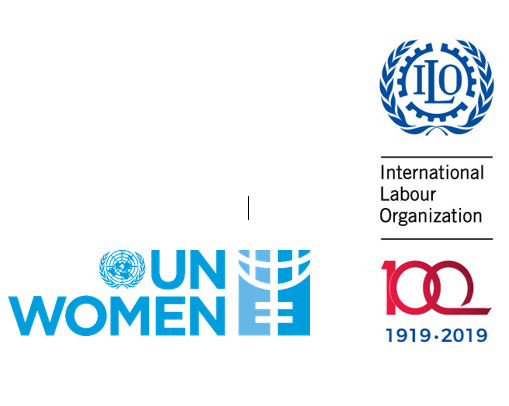Migrating to escape violence, abuse, poverty and inequality, women may end up working in isolated occupations, such as domestic and care work, where they are more exposed to violence and harassment. According to the ILO, there were 67.1 million domestic workers in the world in 2013, of which 11.5 million were international migrants. About 8.5 million of all migrant domestic workers were women (ILO, 2016d, para. 16). En-route, women also face a heightened risk of abuse, extortion and sexual violence, particularly at border crossings. For many migrant women, the lack of information about the dangers of migrating continues to be a concern.
While some migration brokers and recruitment agencies offer limited protections to migrant domestic workers against violence and harassment, not all regular migration channels are free from violence and harassment. Furthermore, for those women without access to regular migration channels, there is little choice but to use irregular channels which risk a dangerous and potentially fatal journey.
Women can experience more situations of vulnerability to violence and harassment at work when they have limited bargaining power and contractual and other rights at work. As such, women need economic independence and employment security that can enable them to report acts of violence and harassment. Migrant workers often have limited bargaining power and insecure contractual arrangements and have their visa status tied to a specific employer or do not hold a valid work permit (ILO, 2016d, para. 531). They often have to work during unsocial hours (such as at night), and may, therefore, be forced to undertake unsafe journeys to and from work.
|
Violence and harassment against women in vulnerable and informal employment |
|
Women in Informal Employment Globalizing and Organizing (WIEGO): Gender and Waste Project in Brazil The WIEGO Gender and Waste Project in Brazil has helped raise awareness about violence against women waste pickers (Dias and Ogando, 2015).[1] The project helped to highlight domestic violence faced by informal waste pickers and has helped to raise awareness about how to prevent and address violence faced by the women. Through participatory action research, the project created safe spaces for women waste pickers to discuss violence and intersecting issues of sexuality, social origin and race. Women shared experiences of facing multiple forms of violence at home and how this is linked to their overall empowerment as women within the waste pickers’ movement. Dialogues were held with men and women leaders in waste pickers' cooperatives and the national waste picker movement on the need for collective work towards gender equality.
|
|
Women informal brick kiln workers in India[2] Trade unions affiliated with the global construction federation, the Building and Wood Workers’ International (BWI), in India have implemented strategies to address the high levels of violence and harassment faced by women working in the informal sector, including in the brick kiln sector. There are an estimated 40,000 brick kilns in India, employing over 7 million workers. Women workers in the brick kiln industry are in extremely vulnerable situations placing them at risk of violence. Most are women migrant workers with low levels of formal education. In addition to sexual harassment and physical violence, women’s situations are further affected by a lack of facilities such as separate toilets, changing/nursing rooms or child care facilities. Trade unions have organized women brick kiln workers, raised awareness about violence and provided support to victims in taking legal cases. The unions use a combination of strategies to prevent and address these problems, including raising awareness about rights, using self-help groups, addressing problems through legal assistance, and union intervention. For example, in 2014, the union Hind Khet Mazdoor Panchayat (HKMP) received a complaint regarding exploitative conditions and harassment faced by women workers at the kiln. Union organizers visited the brick kiln, finding 44 workers (including 12 women) working and living without toilet facilities and adequate living conditions and facing verbal and sexual harassment. The HKMP filed complaints to the local labour department, district administration and police, resulting in the release of the 44 migrant workers. |
|
Women strawberry pickers in Morocco (Hamilton and Theroux-Seguin, 2014) In Morocco, women strawberry pickers were supported to claim their rights at work and address the problem of sexual harassment. The strawberry industry has grown 14-fold since 1990, leading to severe pressure, long working hours and persistent and high levels of sexual harassment against women pickers. In 2012, Oxfam and civil society partners began carrying out training with women strawberry pickers on their rights at work and literacy, which has led to 70 per cent more workers being registered for social security. This, in turn, has led to more workers having employment contracts, which further protects their rights. Oxfam has collaborated with the Ethical Trading Initiative and its British retailer members to encourage Moroccan growers to comply with international labour rights. |
[1] Also see: http://wiego.org/wee/gender-waste-project which includes information about the project, a toolkit and education pack.
[2] BWI case study prepared for Actrav, cited in Pillinger (2017a) op cit. and https://www.ilo.org/wcmsp5/groups/public/---ed_dialogue/---actrav/documents/publication/wcms_546645.pdf
